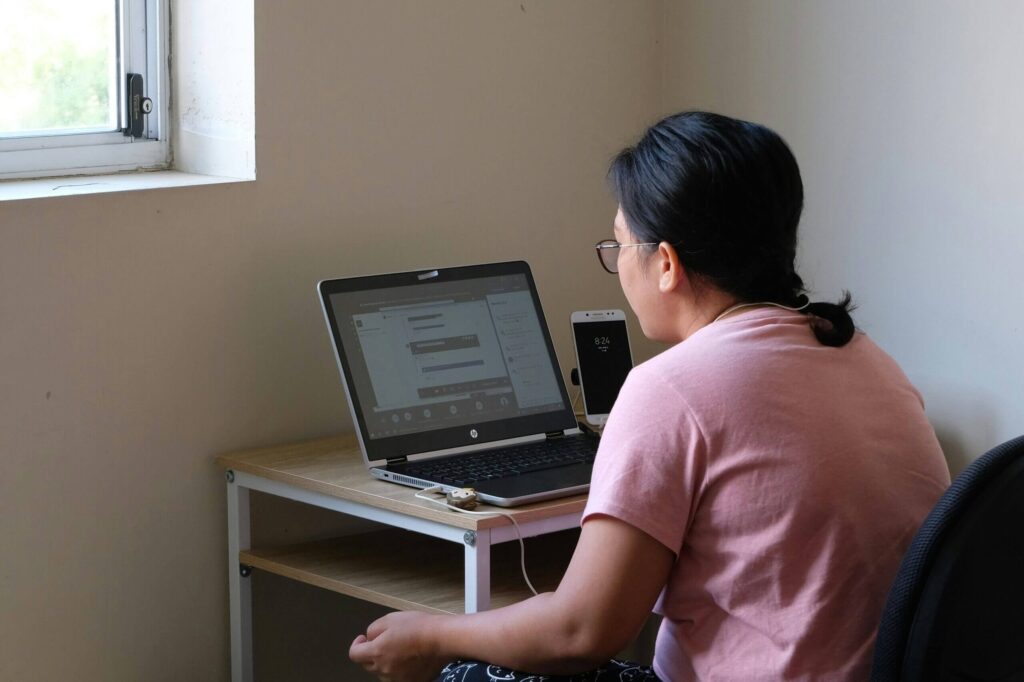Tips to Improve Spoken English

Mastering spoken English is not just about knowing the right words, it’s about confidence, rhythm and the ability to engage in conversation naturally. For many, the challenge isn’t understanding English but about making the language a natural part of your daily routine. If you want to improve spoken English, the key is consistent practice, active listening and embracing the language as part of your daily life.
Speaking English fluently isn’t just about memorising vocabulary or grammar rules. Whether you’re learning for work, travel or personal growth, fluency comes from regular exposure and confidence in expressing yourself. Here are some tips to improve spoken English effectively.
Surround yourself with English
The more you hear English, the more natural it becomes. Even if you don’t understand everything at first, regular exposure will help you absorb the language’s rhythm and pronunciation. Immersing yourself in English by watching TV shows and movies with subtitles, listening to English podcasts or audiobooks and following English speaking social media accounts can help you learn spoken English easily.
Changing your phone and computer language settings to English is another challenge that will help to immerse you in the language. You can learn spoken English from the comfort of your own home. Over time, you’ll start recognising common phrases, expressions and speech patterns, making it easier to use them in conversation.
Practice speaking English every day
Daily practice is essential for improving your English speaking skills. The more you use English, the more comfortable and natural it will feel, helping you gain fluency and confidence over time.
Some simple ways to practice daily include talking to yourself and narrating your daily activities in English, speaking with a language partner or recording yourself and listening to your pronunciation and improving where needed. For ideas on what to practice, you can rehearse common interactions such as ordering food, making appointments or introducing yourself.
Just like exercising a muscle, consistent practice strengthens your ability to think and speak in English.

Think in English
This might sound strange but instead of translating from your native language, try thinking directly in English. Start with simple thoughts, like what you’re going to eat for dinner or what’s next on your to-do list. As this becomes second nature, it will become easier to form complete sentences and inner dialogues in English.
A great exercise is to describe your day in English before going to bed. This helps reinforce vocabulary and sentence structures while training your brain to process English naturally.
Learn phrases, not just words
Fluency isn’t about knowing complex words but about using the right expressions naturally. Learning phrases in context helps you understand their meaning and usage.
Find the most relevant phrases you use daily and practice using them in everyday conversations so they become easier to learn. This will make your spoken English more natural and engaging.
Improve spoken English with imitation
Pronunciation plays a crucial role in being understood. A great technique to improve spoken English is shadowing by listening to native speakers and repeating what they say, mimicking their tone, pace and rhythm. By mimicking native speakers, you’ll improve your pronunciation and sound more natural.
A useful technique is watching movies or interviews with subtitles and repeating the sentences out loud. Using apps that provide pronunciation feedback and reading aloud from books, articles or scripts to develop fluency and confidence is also useful for improving clarity and articulation.
Join an English-speaking community
Speaking with others is one of the best ways to improve fluency and improve spoken English. Engaging in real conversations will help you build confidence, expand your vocabulary and enhance your listening skills.
You can also learn spoken English at home by engaging in discussions on English-speaking forums or social media groups. Joining online language exchange platforms, participating in English conversation clubs or finding a language buddy are other ways to practice English with others. Surrounding yourself with people who speak English will help you develop natural conversation skills in a relaxed setting.
In our communty made by lots of professional tutors you will learn not only how to improve english online, but also the best trick to master spoken english. One of our most popular courses is our whatsapp group to learn english. Perfect for those interested in learning how to communicate in English online.
If you’re ready to take your English speaking skills to the next level, our online course is designed to help you practice in real-life scenarios, build confidence and speak naturally. With interactive lessons, expert feedback and a supportive community you’ll improve faster than ever.
Sign up today and start speaking English with confidence!/
FAQ
The most frequently question about to improve your spoken english!
How long does it take to become fluent in English?
It depends on how much you practice. Some people see noticeable improvements in a few months while full fluency can take years. The key is consistency and real-world practice.
How to avoid mistakes in speaking English?
Making mistakes is a natural part of learning. Instead of fearing them, embrace them as opportunities to improve spoken English. The more you speak, the more confident and accurate you’ll become.
Can I improve my English without a conversation partner?
Yes, you can practice by recording yourself and listening for mistakes, reading aloud to improve fluency and watching videos and imitating the speakers.
Do I need to learn english grammar first?
Grammar helps but fluency comes from practice. Many native speakers don’t follow every rule perfectly, but they communicate effectively. Focus on speaking and grammar will improve naturally over time.
How can I overcome my fear of speaking English?
Start with small, manageable conversations and remind yourself that mistakes a part of learning. Focus on communication rather than perfection. Remember, confidence grows with practice, so keep speaking and challenging yourself.
